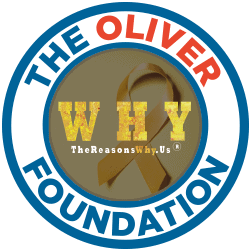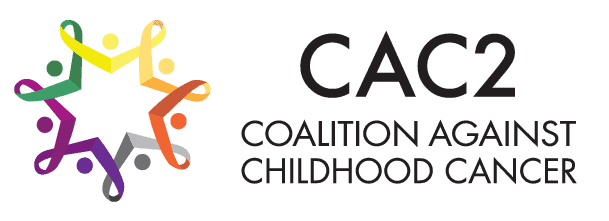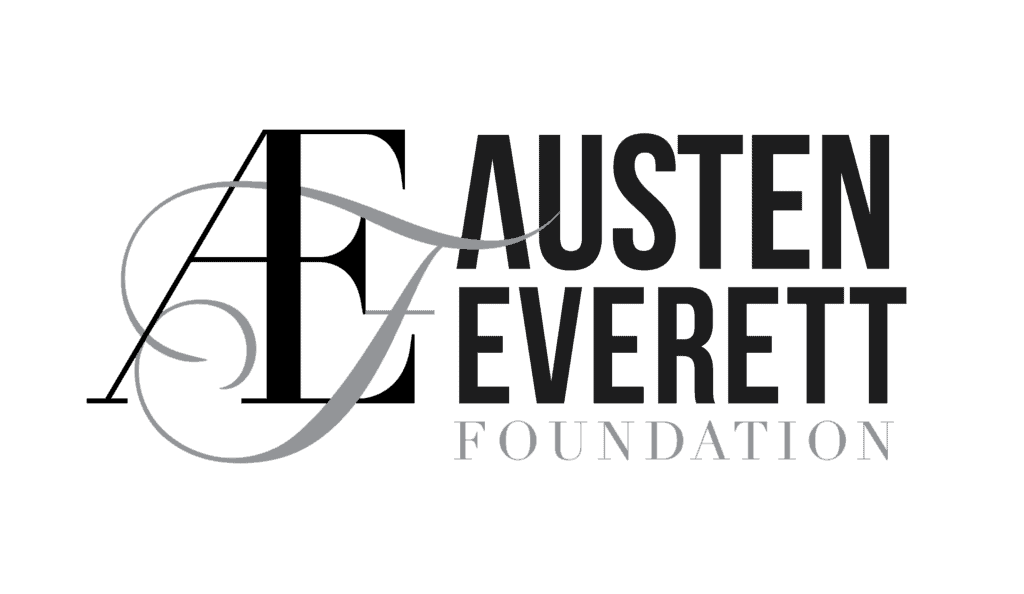TheReasonsWhy.us
About The Study
Cancer is the #1 cause of disease-related death for children. One in 285 children in the USA will be diagnosed with cancer before 20: One in eight will not survive childhood.
Our mission is to support research and actions that will prevent childhood cancer caused by modifiable environmental exposures.
While medical advances in treatment have raised the level of five-year survivorship to around 80%, an estimated 95% of survivors will suffer from a chronic health condition by the age of 45.
We now know that environmental factors are overwhelmingly responsible for causing cancer: Research studies show that genetic profiles can be correlated to certain pediatric cancers in just 5% to 10% of cases. And correlation is not causation.
The surge in pediatric cancer since the 1970s, along with other health conditions and diseases, coincides with the introduction into our everyday lives of tens of thousands of chemicals mostly untested for toxicity.
According to a World Health Organization training paper entitled Children’s Health and the Environment addressing the environmental causation of cancer:
“Development of cancer within the human or animal body requires an intricate consequential progression of events within the cells that may be aborted at several stages. Unfortunately, this very complex process is successful all too frequently.
“Carcinogenesis occurs in three main stages: Initiation of the cancer occurs when an environmental agent such as a chemical, an infection or radiation successfully damages DNA and this damage fails to be repaired. During the next stage or promotion stage, further genetic damage occurs in the form of mutation until there is loss of regulatory processes and the cancer moves into the progression phase with tumor growth and metastases.”
Bottom line: If cancer is caused overwhelmingly by environmental factors, it is a preventable disease. IF we control the toxicants.
To date, these data do not exist from sufficiently large numbers of people to broadly interrogate possible environmental causes, especially for specific types of cancer.
In order to build the evidence needed to identify and to protect us from the toxicants associated with child/teen cancer, we have therefore teamed up with Baylor College of Medicine, Texas – part of the largest medical complex in the world – in a unique, pioneering research study, TheReasonsWhy.Us
TheReasonsWhy.Us is patient-driven, online and global. The study is based on the scientific expertise and experience of leading cancer epidemiologists and toxicologists across the USA. It comprises a comprehensive, family history questionnaire incorporating diet, neonatal practices, medications, infections, sports, leisure and other personal activities. Clinical samples are also collected (saliva and baby teeth, if available).
The study builds on the local, in-person pediatric cancer epidemiological study conducted at Texas Children’s Hospital for a number of years under the leadership of Dr Michael Scheurer, PhD, MPH, a molecular epidemiologist and professor of pediatrics/hematology and oncology, and co-director of Baylor’s Center for Epidemiology and Population Health.
The study is patient-driven in that our role at TheReasonsWhy.Us is to enroll its participants – families who have been affected by pediatric cancer. Subsequently, on a regular basis, we transfer the families’ data to Baylor, whose team then reaches out to the families. In May 2020, after final approvals had been obtained from Baylor’s Internal Review Board, we initiated the transfer to Baylor of the contact data of our first 400 families. Baylor started to reach out to them the following month.
In effect, our community of like-minded scientists and families are seeking answers to the first question all families ask upon diagnosis:
What Caused This?
By partnering with Baylor, we can help expand its investigation into environmental causes of childhood cancers across the United States and internationally.
Baylor hosts the data observing all relevant security and privacy protocols under the Health Insurance Portability and Accountability Act (HIPAA) to ensure the privacy and confidentiality of the families’ data. Prior to contributing their data, families also have the opportunity to read and sign a consent form that explains the research purposes for which the data will be utilized and the security and privacy protocols that will protect their integrity and confidentiality.
Baylor will consolidate the information into a database that will constitute the Universal Study of Pediatric Cancer – TheReasonsWhyUs so that Baylor can assess exposures to key environmental toxicants, combining multiple datasets such as air and water studies, pollution (including “superfund”) sites – and analysis of baby teeth for the presence of certain chemicals early in life.
This research will lead us to better understand the causes of different pediatric cancers and the mechanisms whereby environmental toxicants trigger the disease.
The combination of Baylor’s status as part of the world’s largest medical complex, its ability to collect and analyze clinical samples, and the online questionnaire for obtaining family data makes this a unique, pioneering investigation.
Baylor’s status and reputation also mean its findings will have substantial weight with legislative and regulatory authorities.
“By launching this web-based study,” said Dr. Scheurer, “we hope to obtain significant data from a large number of families on a shorter timeline, which will be critical to identifying associations that we hope will lead to implementation of measures to limit exposures, increase public safety and prevent the cancers occurring in the first place.”
“We need to widen society’s focus on detection, diagnosis and treatment to assertively embrace prevention. Identifying and trying to limit exposure to the environmental factors that can lead to cancer or malfunction of the immune, endocrine and other body systems in children, who are more vulnerable to these effects, may allow us to finally identify the causes for the 90-95% of childhood cancers for which we still don’t know the causes.”
TheReasonsWhy.Us is the key project of The Oliver Foundation, a 501(c)(3) established in Florida in 2019. Previously, since 2015, The Oliver Foundation operated informally under the fiscal sponsorship of the Key Biscayne Community Foundation.
Our Scientific Advisory Panel supports the Foundation in its drive to develop epidemiological and other research into the environmental and associated genetic risk factors involved in the etiology of pediatric cancer; in its drive to raise public awareness that pediatric cancer is the #1 cause of disease-related death in young people and that environmental risk factors are primarily responsible; and in identifying methods and materials to help families mitigate the risks associated with toxic environmental exposures.”
The members of our Scientific Advisory Panel are:
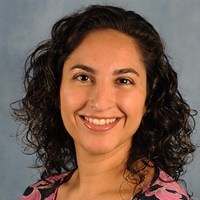
Dr. Haneen Abdella, M.D., oncologist at Miami’s Nicklaus Children’s Hospital, graduated from the University of Miami Miller School of Medicine before completing her Pediatric Residency in 2009. She fulfilled her Fellowship in Pediatric Hematology Oncology at Emory University, where her research earned her the award for Best Basic Science Young Investigator Abstract at the Children’s Oncology Group Meeting, September 2012.
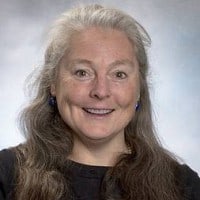
Dr. Brenda Birmann, ScD, Assistant Professor of Medicine in the Channing Division of Network Medicine at Brigham and Women’s Hospital and Harvard Medical School. Her research focuses on the epidemiology of hematopoietic malignancies, on oncogenic virus infections, and on the assessment of immune dysfunction for epidemiologic studies.
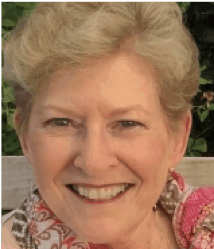


Dr. Michael Scheurer, PhD, MPH, Professor of Pediatrics at Baylor College of Medicine, where he also directs the Texas Children’s Cancer Center Epidemiology Program. His research examines molecular risk factors for childhood cancers, and he collaborates on large international consortium studies of a variety of risk factors for childhood leukemias and other cancers.
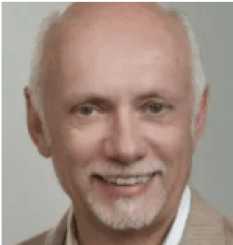
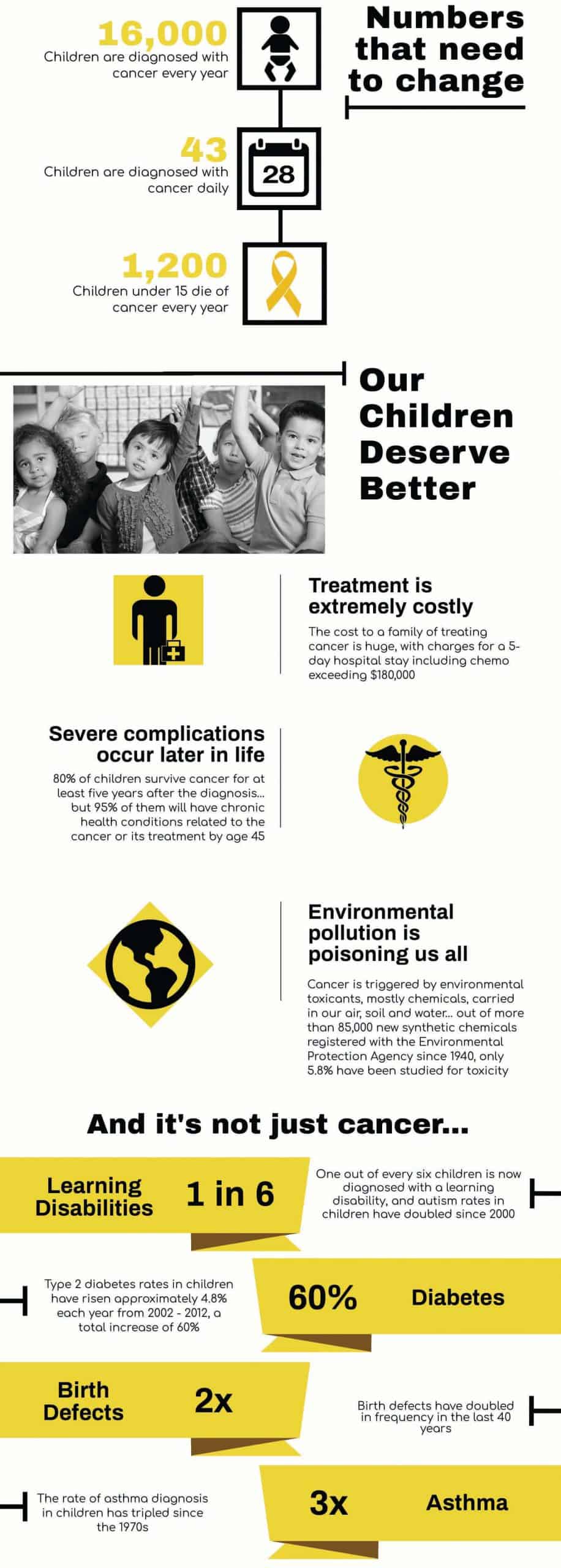

Executive Directors
Simon Strong
Vilma Strong
Scientific Advisors
Dr. Haneen Abdella
Dr. Brenda Birmann
Dr. Margaret Kripke
Dr Philip Landrigan
Dr. Michael Scheurer
Dr Martyn T. Smith
Ambassadors
Amy Griffin
Lesley Pacey
Jean Bryant
Beth Weinberger
Raquel Coronell-Uribe
Sponsors & Key Partners
Other Special Friends


